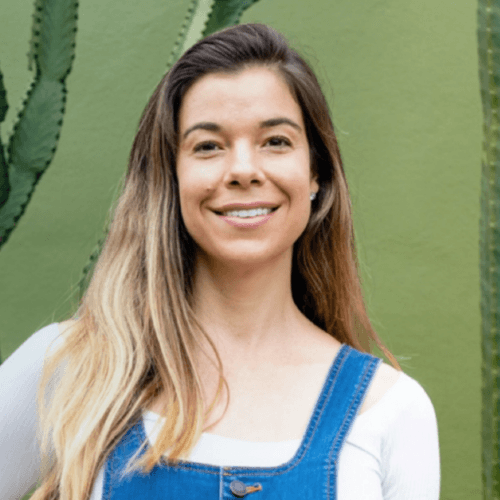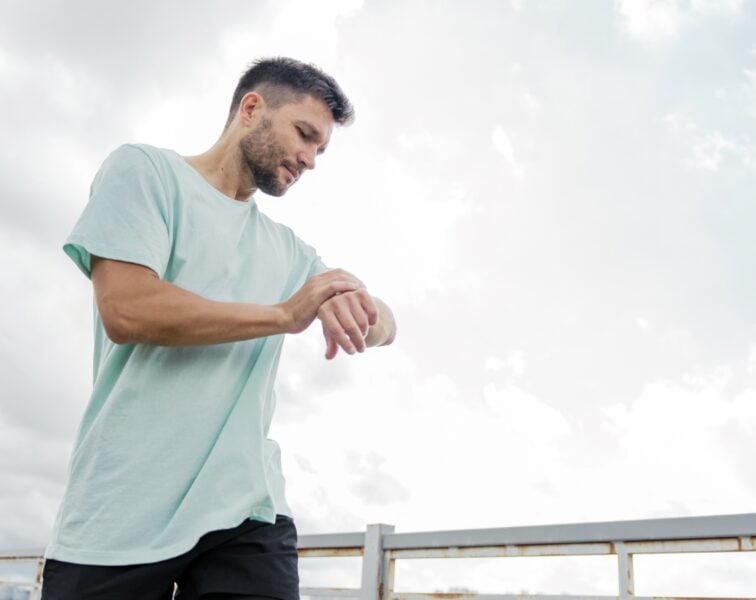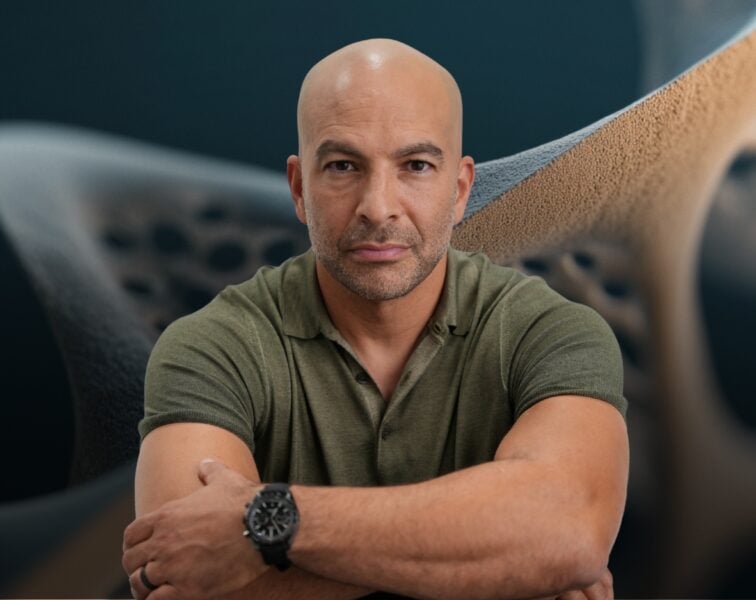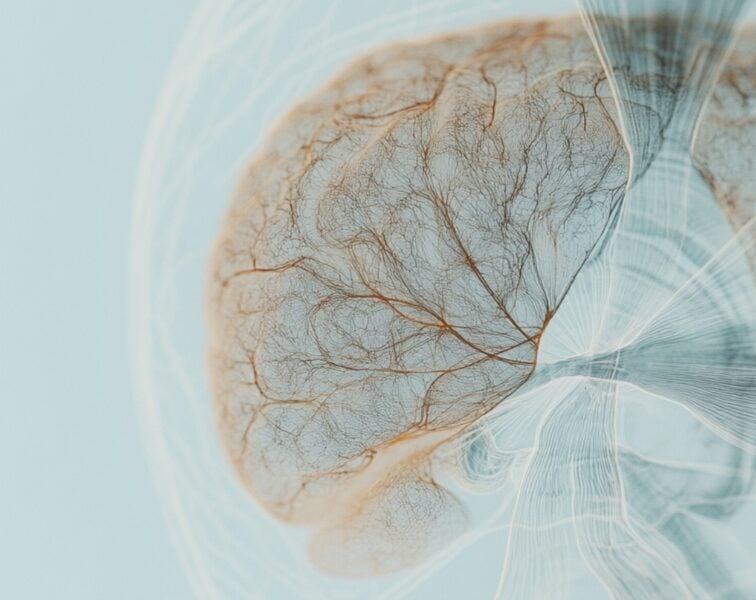Rhonda Patrick, Ph.D., is a scientist with expertise in the areas of aging, cancer, and nutrition who translates complex scientific topics into actionable insights on her podcast, Found My Fitness. In this episode, Rhonda provides her latest thinking as it relates to Alzheimer’s disease including the possibility of a vascular hypothesis as well as the factors that can impact disease risk such as type 2 diabetes, blood pressure, omega supplementation, exercise, sauna, and more. She also touches on cancer risk including the relationship between cancer and exercise as well as the link between alcohol consumption and cancer. Additionally, Rhonda explains her new focus on exercise and protein consumption as well as how her perspective has shifted as it pertains to fasting and time-restricted feeding.
Subscribe on: APPLE PODCASTS | RSS | GOOGLE | OVERCAST | STITCHER

We discuss:
- Alzheimer’s disease: Rhonda’s evolved thinking on neurodegenerative diseases [2:30];
- The breakdown of the blood-brain barrier in neurodegenerative disease [8:45];
- An explanation for the observation that type 2 diabetes increases risk of Alzheimer’s disease [15:45];
- The role of omega-3 fatty acids (EPA and DHA) in brain health and prevention of neurodegeneration [19:45];
- Comparing the preventable nature of type 2 diabetes, atherosclerosis, cancer, and dementia [32:15];
- Blood pressure: an important modifiable lifestyle factor that can affect Alzheimer’s disease risk [35:15];
- Rhonda’s outlook on “precision medicine” as it pertains to one’s genetic predispositions [38:45];
- Possible mechanisms by which exercise reduces the risk of Alzheimer’s disease [45:45];
- Building your aerobic pyramid: neurobiological effects of exercise, benefits of lactate peaks, and more [53:45];
- Maximizing mitochondrial biogenesis: alternative training approaches and strategies [58:45];
- Possible brain benefits of sauna, and Rhonda’s personal protocol [1:09:30];
- The relationship between cardiorespiratory fitness and dementia risk [1:15:30];
- How exercise may reduce the risk of cancer [1:20:30];
- The overarching impact of exercise of health, and the importance of focusing the factors that matter most [1:33:15];
- Impact of alcohol consumption on breast cancer risk and overall health [1:37:15];
- Exercise as an intervention for poor sleep habits [1:42:30];
- The longevity benefits of consuming adequate protein and strength training to preserve muscle mass and strength [1:46:30];
- How to get enough of the right kind of protein in your diet [2:05:15];
- Fasting: weighing the risk vs. reward [2:12:15];
- How Rhonda’s views have shifted on diet and exercise [2:15:30];
- How to follow Rhonda’s work and more about the benefits of lactate for the brain [2:21:00]; and
- More.
Get Peter’s expertise in your inbox 100% free.
Sign up to receive An Introductory Guide to Longevity by Peter Attia, weekly longevity-focused articles, and new podcast announcements.
Alzheimer’s disease: Rhonda’s evolved thinking on neurodegenerative diseases [2:30]
How Rhonda’s thinking about Alzheimer’s disease has evolved in the past five years
- Peter and Rhonda last sat down to do a podcast five years ago, and both have evolved a lot in their thinking since then
- Peter remarks, “That’s the nature of science, that’s the nature of what we do and we’re trying to learn”
- Rhonda has neurodegenerative disease on her mind a lot because Alzheimer’s disease and Parkinson’s disease both run in her family and she has a genetic predisposition
- It’s paramount for her to understand everything she can do with diet, with lifestyle, limiting exposure to certain things, etc.,
- The Alzheimer’s disease field has been on quite a rollercoaster with regards to the dominating hypothesis (the amyloid hypothesis)
- The major pathologies of Alzheimer’s disease are:
- 1 – Amyloid plaques in the brain
- 2 – Tau tangles
- 3 – Glucose hypometabolism where glucose uptake into the brain is impaired, and perhaps even the utilization of glucose as well
- These are three major pathologies of Alzheimer’s disease, and it seems as though the majority of science and scientists have decided to target Alzheimer’s disease is through this amyloid/ anti-amyloid hypothesis
- There have been quite a few failed trials, though more recently, possible success
Generally speaking, are we trying to treat a symptom or are we too far downstream?
- Rhonda started reading some studies by Berislav Zlokovic at USC and Axel Montagne, who was trained with Dr. Zlokovic and now has his own lab at the University of Edinburgh in Scotland
- Rhonda recently had Axel on her podcast, and when she started reading some of this literature, she gained a new understanding of Alzheimer’s disease
She began to question the underlying causes of dementia
There are three major types of dementia
- Alzheimer’s disease (the most common), cerebral small vessel disease, and vascular dementia
- Is there a common underlying denominator between those?
“What sort of lifestyle factors and genetic factors do we know really increase the risk of Alzheimer’s disease and dementia?”‒ Rhonda Patrick
- We know that people who have the APOE-ε4 allele have a twofold increased risk of Alzheimer’s disease
- If you have two copies (one from your mom and one from your dad), the risk could be up to tenfold
- This isn’t early-onset Alzheimer’s; it’s late-onset, the normal, age-related aggression of Alzheimer’s disease
- We also know that 50-80% of people with Alzheimer’s disease have type 2 diabetes, “There is definitely something going on.”
Preventive neurology is still on the outskirts of this field
- The premise of Rhonda’s interest is her increased risk of disease
- The NIH doesn’t acknowledge the idea of prevention as a strategy within this field
- Peter notices, “Most people are thinking about what to do when you have Alzheimer’s disease. Not as many people are thinking about the question that you’re asking and that a few other people are asking, which is what’s in our control?”
If you can prevent type 2 diabetes, does this suggest the possibility of preventing or delaying Alzheimer’s disease?
- Rhonda agrees, this is the question we should be looking at
- Understanding the underlying cause of Alzheimer’s disease opens up new avenues for prevention and treatment
- With respect to APOE-ε4 and type 2 diabetes, is there something common going on here that we can understand as a foundation to what are the initial things going wrong to lead to Alzheimer’s disease?
- Is where vascular dysfunction fits in?
Dysfunction in the blood vessels and capillaries that line the blood-brain barrier seem to be a really, really early event that is common between all types of dementia and between type 2 diabetes and APOE-ε4
The breakdown of the blood-brain barrier in neurodegenerative disease [8:45]
What is the blood-brain barrier (BBB)?
{end of show notes preview}
Would you like access to extensive show notes and references for this podcast (and more)?
Check out this post to see an example of what the substantial show notes look like. Become a member today to get access.

Rhonda Patrick, Ph.D.
Rhonda Patrick earned her BS in biochemistry/ chemistry from the University of California, San diego. She earned her PhD in biomedical science at the University of Tennessee Health Science Center, St. Jude Children’s Research Hospital. In her graduate work she investigated the link between mitochondrial metabolism, apoptosis, and cancer. She discovered a protein critical for cell survival which has two distinct mitochondrial locations with disparate functions. Her work linked the role of this protein in inhibiting apoptosis to a previously unrecognized role in mitochondrial respiration and maintenance of mitochondrial structure. Her dissertation findings were published in the 2012 issue of Nature Cell Biology.
Dr. Patrick did her postdoctoral training at Children’s Hospital Oakland Research Institute with Dr. Bruce Ames where she investigated the effects of micronutrient inadequacies on metabolism, inflammation, DNA damaging, and aging. She investigated whether supplementation can reverse such damage. Additionally, she studied the role of vitamin D in brain function, behavior, and other physiological functions.
Dr. Patrick. also spent time at the Salk Institute for Biological Sciences where she investigated the role of insulin signaling in protein misfolding, a common characteristic of neurodegenerative disease. In 2012, she co-founded FoundMyFitness Science Podcast with the goal of encouraging the public to think about health and longevity using a proactive, preventative approach. [FoundMyFitness]
Twitter: @foundmyfitness
Instagram: @foundmyfitness
Facebook: FoundMyFitness
YouTube channel: FoundMyFitness
Rhonda’s podcast: FoundMyFitness
Rhonda’s website: FoundMyFitness



